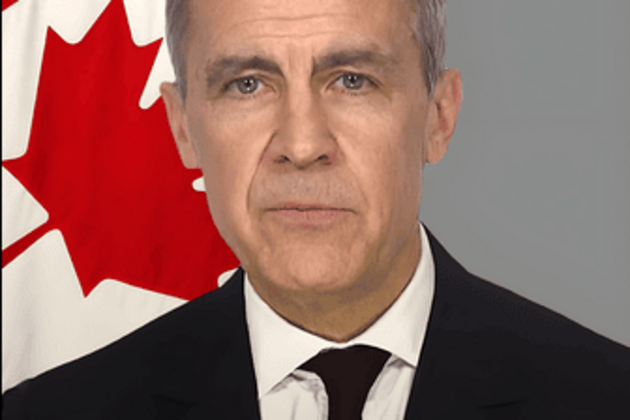Ten years of financial fair play: has it been good for European football?
The Conversation
25 Nov 2021, 18:10 GMT+10

Even in a sport as old as football, the rules of the game can change. The same is true off the pitch, as with the introduction ten years ago of regulations known as financial fair play.
Designed to ensure that clubs spend within their means, the rules were implemented by Uefa in 2011 to stop European teams from running up huge losses and debts, and encourage them to be financially prudent.
The warning signs had been on the cards for some time, and Uefa wanted to "improve the overall financial health of European football".
In England for example, Chelsea FC, had debts in 2004 of Pound 295 million (up 67% from the previous year). Leeds United, with debts of Pound 78 million in 2002 (up 50% from 2001) was having to sell its star players at a huge discount. Elsewhere in Europe, similar cases in Spain (Deportivo La Coruna), and Italy (Parma) had also caught Uefa's attention.
By 2009, Uefa felt compelled to intervene. Net losses across Europe stood at €1.6 billion (Pound 1.3 billion, up 33% from 2008), and on average, clubs were spending 64% of their income on player wages. In 78 extreme cases, it was more than 100%.
The cornerstone of financial fair play (FFP) is what's known as the "break-even requirement" which requires every team participating in Uefa competitions (238 clubs in 2020) to keep losses down to no more than €5 million over three years.
Crucially, this only takes into account what is considered "relevant" income and expenses - what clubs earn from normal football business activities - to prevent the wealthiest owners from funding clubs' player investment. The idea is that this will encourage clubs to spend within their means and provide a level financial playing field.
So, ten years on, has it succeeded in its goals?
In 2019, the net loss in European football was €125 million (a 92% fall from 2009) following the first-ever consecutive years of overall profitability in 2017 and 2018. These figures suggest that FFP has had the desired effect in moving clubs away from losses.
Some of the growth in income is partly attributable to the introduction of the rules. Sponsorship agreements - which must meet a fair market value assessment carried out by Uefa - with brands have replaced the loans previously relied upon to fund club operations.
Another important source of income, which adheres to the requirement of breaking even, is selling players for profit, even (though not always) to clubs considered close rivals.
Winners and losers
Chelsea, for example, which made Pound 94 million in profit in the nine years before FFP, made Pound 623 million in the same time period afterwards, according to our assessment of the club's own statements. The new laws prevented its wealthy owner, Roman Abramovich, from directly funding the club's investment in star players, so instead it successfully adopted a model of buying young players, sending them out on loan to gain experience, and then selling them for substantial transfer fees.
But not everyone has enjoyed this kind of financial success, and one of the biggest criticisms of financial fair play is that it leads to a freeze on competition. Some think that historically successful clubs with elite footballers and the financial power to acquire new talent will dominate because the rules restrict non-football income for investment in the playing squad.
This means that new money arriving at old clubs - such as the Saudi backed takeover of Newcastle United - may struggle to immediately make an impact. The new owners will be unable to invest extra funds if the club qualifies for European competition (FFP only applies to clubs involved in Uefa organised tournaments like the Champions League).
Careful financial planning was also mightily undone by the impact of COVID. With fans unable to attend matches, income dropped dramatically, so Uefa announced a break in the monitoring period to isolate the years 2020 and 2021. (As expected, most clubs reported significant pandemic related losses, but Barcelona FC's €555 million pre-tax loss (up 317%) still raised eyebrows.)
Aside from the effects of coronavirus then, taking its overarching objective of reducing losses and promoting overall profitability, FFP regulation must be considered a success. The evidence suggests that the business model modification it encouraged - player sales and sponsorship income - is responsible for overall improved profitability in European football.
However, the regulation has not been able to curb high wages and transfer fees inflation, which could yet threaten club finances. There have been reports suggesting that Uefa is looking to replace FFP with a salary cap and a luxury tax on transfers, but the organisation has dismissed the idea of abolishing FFP, saying it will "adapt". It may be that the upward trajectory of wages and transfers fees ends up being one aspect of the football business that the regulator will just learn to live with, and decide to play on.
Authors: Mobolaji Alabi - PhD Candidate, Finance, University of Reading | Adrian R Bell - Chair in the History of Finance and Research Dean, Prosperity and Resilience, Henley Business School, University of Reading | Andrew Urquhart - Professor of Finance & Financial Technology, ICMA Centre, Henley Business School, University of Reading 
 Share
Share
 Tweet
Tweet
 Share
Share
 Flip
Flip
 Email
Email
Watch latest videos
Subscribe and Follow
Get a daily dose of Europe Sun news through our daily email, its complimentary and keeps you fully up to date with world and business news as well.
News RELEASES
Publish news of your business, community or sports group, personnel appointments, major event and more by submitting a news release to Europe Sun.
More InformationInternational
SectionTrump hints at DOGE investigation of Musk subsidies
WASHINGTON, DC - U.S. President Donald Trump on Tuesday claimed Elon Musk's success has been built on government subsidies. Without...
Native leaders, activists oppose detention site on Florida wetlands
EVERGLADES, Florida: Over the weekend, a diverse coalition of environmental activists, Native American leaders, and residents gathered...
Beijing crowds cheer AI-powered robots over real soccer players
BEIJING, China: China's national soccer team may struggle to stir excitement, but its humanoid robots are drawing cheers — and not...
COVID-19 source still unknown, says WHO panel
]LONDON, U.K.: A World Health Organization (WHO) expert group investigating the origins of the COVID-19 pandemic released its final...
Fox faces $787 million lawsuit from Newsom over Trump phone call
DOVER, Delaware: California Governor Gavin Newsom has taken legal aim at Fox News, accusing the network of deliberately distorting...
DeepSeek faces app store ban in Germany over data transfer fears
FRANKFURT, Germany: Germany has become the latest country to challenge Chinese AI firm DeepSeek over its data practices, as pressure...
Business
SectionNvidia execs sell $1 billion in stock as AI boom drives record prices
SANTA CLARA, California: Executives at Nvidia have quietly been cashing in on the AI frenzy. According to a report by the Financial...
Tech stocks slide, industrials surge on Wall Street
NEW YORK, New York - Global stock indices closed with divergent performances on Tuesday, as investors weighed corporate earnings, central...
Canada-US trade talks resume after Carney rescinds tech tax
TORONTO, Canada: Canadian Prime Minister Mark Carney announced late on June 29 that trade negotiations with the U.S. have recommenced...
Lululemon accuses Costco of selling knockoff apparel
Vancouver, Canada: A high-stakes legal showdown is brewing in the world of athleisure. Lululemon, the Canadian brand known for its...
Shell rejects claim of early merger talks with BP
LONDON, U.K.: British oil giant Shell has denied reports that it is in talks to acquire rival oil company BP. The Wall Street Journal...
Wall Street extends rally, Standard and Poor's 500 hits new high
NEW YORK, New York - U.S. stock markets closed firmly in positive territory to start the week Monday, with the S&P 500 and Dow Jones...













